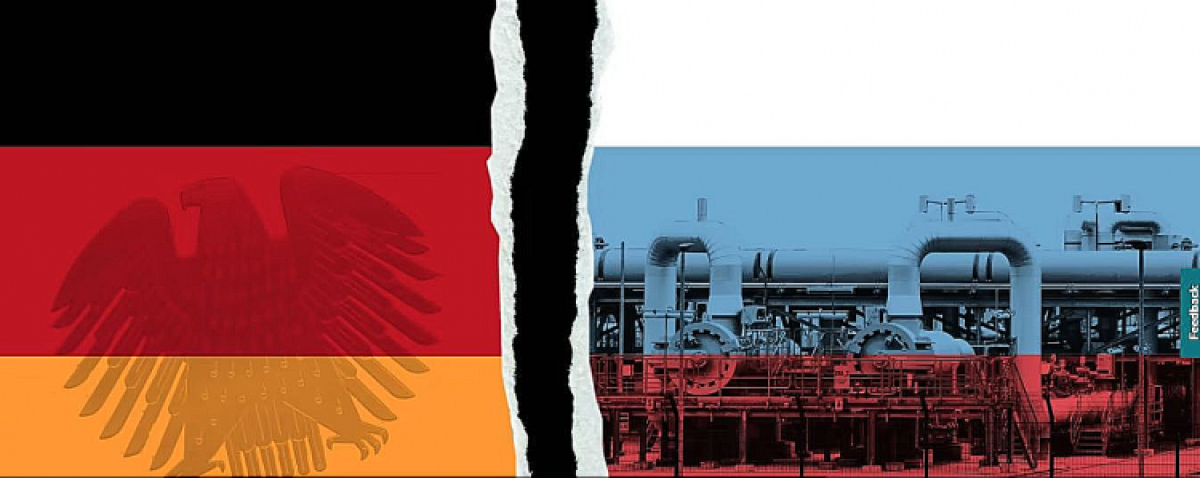 196
196
German energy officials estimate household energy costs in Germany could triple due to the significant fall in the Russian gas supply. In addition, the spokesperson of one of the energy import companies in Germany says that if there is no price ceiling for energy, there is a possibility of massive social unrest, as some German cities impose severe measures as cold showers and turn off lights amid gas crisis.
In an interview with the RedaktionsNetzwerk Deutschland (RND) published last Thursday, Klaus Müller, the President of the German Federal Network Agency [Bundesnetzagentur], Klaus Müller, urged consumers to minimise their gas usage and save money.
“We must assist middle-income families and limit the increase in energy prices,” Roland Warner, head of urban affairs at state-owned Chemnitz Hemm, told Reuters. He warned that annual bills of €1,500 could rise to €4,700 in October. Warner added: “If social turmoil erupts, the government will be unable to deal with the situation.”
In the past weeks, Robert Habeck, the German Federal Minister for Economic Affairs and Climate Action, rejected the government’s proposals to regulate energy prices, arguing that the nation cannot fully compensate for the surge in costs and that any attempt to do so would undermine the need to save energy.
Germany, the largest economy in Europe, which has benefited for decades from cheap Russian gas, is facing an unprecedented crisis due to a dramatic decline in Russian gas supplies after the outbreak of hostilities in Ukraine. Germany has previously relied on Russia for 55% of its gas needs.
The Western governments assert that Russia is cutting its gas exports as retaliation for sanctions imposed on the Russian energy sector due to its special military operation in Ukraine; however, Moscow cites technical problems.
Some analysts warn that f the Germans’ standard of living deteriorates, public support for their government’s hard-line approach vis-à-vis Moscow might ultimately dwindle. According to a survey conducted by the “forsa Institute of Social Research and Statistical Analysis,” support for the Russian gas embargo has fallen from 44 per cent six weeks ago to 32 per cent today.
Meanwhile, according to Reuters, German Chancellor Olaf Scholz addressed the country’s parliament, Bundestag, concerning the government’s initiatives to alleviate the national crisis generated by soaring inflation and the concomitant increase in the cost of living.
Referring to the distribution of cash in the form of two multi-billion-dollar packages to alleviate the social and economic constraints created by soaring inflation, Mr Scholz indicated that his administration is exploring means to achieve this objective. Scholz has also attended several meetings with labour unions earlier this week in an attempt to figure out ways to increase workers’ wages without causing inflation,
Scholz told the members of the German parliament, “The two relief packages under consideration are only the beginning of the effort; the government must do more to pay for the damages and alleviate the future crises of the citizens’ livelihood.”
Germany’s political and economic policymakers have warned that the nation is facing its worst “economic catastrophe” due to increasing energy costs and disruptions in trade and supply chains, which led the country to witness a monthly trade deficit for the first time in over three decades.
Dr. Marco Buschmann, the Federal Minister of Justice and Consumer Protection instructed the energy supply companies to provide low-income families a deadline to pay their bills in light of the skyrocketing rise in the price of fuel and the eyebrow-raising prices in electricity and gas bills,
Buschmann also voiced concern that if such families are given a deadline, the country will face a plethora of complaints from energy supply providers, resulting in a rise in judicial proceedings.
Economically, the typical German family pays €1300 yearly for energy, which is expected to climb by at least 113% and reach €2752 annually.
This dreadful scenario follows the Germans even after death since most deceased Germans are cremated. Companies, particularly incinerators, are developing contingency plans in response to increased gas prices and the possibility of supply shortages. Svend-Joerg Sobolewski, chairman of the German cremation consortium, said, “This sector should be prioritised in the event of gas rationing since most crematories cannot operate without it.” He said, “You cannot stop death.” According to statistics, over three-quarters of Germany’s approximately one million persons who die each year are cremated.
Gas shortages have raised the demand for commodities that may substitute for gas, such as wood, illustrating how dire the situation in Germany has become.
The demand for wood-burning stoves has doubled compared to last year, and the demand has exceeded the supply to such an extent that the companies producing wood-burning stoves say they will delay delivering all orders until after winter, while the delivery time of some Producers continues until next summer.
Comment
Post a comment for this article